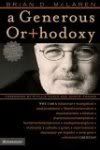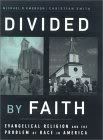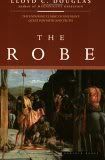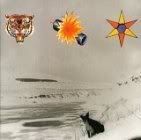 I can't disagree with pretty much anything McLaren says in Chapter 16, "Why I Am Green". I think he hits a very important point on page 234, where he talks about the doctrine of the fall eclipsing the doctrine of creation in much of Western Christianity:
I can't disagree with pretty much anything McLaren says in Chapter 16, "Why I Am Green". I think he hits a very important point on page 234, where he talks about the doctrine of the fall eclipsing the doctrine of creation in much of Western Christianity:
…if, due to an exaggerated doctrine of the fall, God’s creation loses its sacredness as God’s beloved artwork, we have magnified human sin beyond sane bounds – and in fact added to its sad effects.
I think this out of kilter view of creation/fall has affected so many other aspects of spirituality as well. For example, one of the hurdles I encountered at l'abri was learning that being a Christian didn't mean I had to completely lose myself, or become nothing (because I was fundamentally evil because of the fall), but instead it meant finding myself and becoming more fully 'me' by embracing my status as a beloved creation of a good God. Pretty drastic difference. Instead of valuing ourselves, our neighbors and creation as bearers of the goodness of the Creator, we have devalued and distorted them through this myopic view of the fall. Which is not, as McLaren also rightly notes, to ignore the doctrine of the fall, but rather to put it in its rightful place.
Another key point he touches on is the lack of perceived continuity between the world we're currently in and the world to come. I believe that, to quote Belinda Carlisle, heaven is a place on earth. That the earth will be renewed/restored, and that what we do now matters. Part of the cultural mandate in Genesis is to take an already good creation and make it even better. In a sense (and I can see a thousand ways this could be misconstrued) we can take it with us. I'll pull a McLaren here and leave it purposefully vague and see if it generates any discussion.
Chapter 17, "Why I Am Incarnational", has some good points on inclusion vs. exclusion, which we touched on a bit before in some previous chapters. I appreciated the way he presented it on page 247: "Jesus threatened people with inclusion; if they were to be excluded, it would be because they refused to accept their acceptance." I also liked the way he expanded on the "I come with a sword" teaching of Jesus. What did you think?
The distinction he makes between love/acceptance and approval is an important one (see page 250). I often think of the way that we are loved by God, wholly loved and accepted as we are, but at the same time called to change. I think transformation is often rooted in love. When I am accepted by someone I usually want to be more acceptable to them- be worthy of their love, however if I am met with disapproval and judgement, I tend to write them off and even the good critiques they have of me might get ignored. Engaging in respectful dialogue seems to be one of the most important ways we can show love for people, and I think he's on to something with the notion of confession being a crucial ingredient. He also mentions humility, and I agree that if we come to the table as 'teacher' and not as 'learner', we've missed something.
I guess my main critique of this chapter would have to be that again, I think he may be taking it all a bit too far. On page 260 he says:
I must add, though, that I don't believe making disciples must equal making adherents to the Christian religion. It may be advisable in many (not all!) circumstances to help people become followers of Jesus and remain within their Buddhist, Hindu, or Jewish contexts.
and then on page 264:
...I do hope that all who feel so called will become Buddhist followers of Jesus... I don't hope all Jews or Hindus will become members of the Christian religion. But I do hope all who feel so called will become Jewish or Hindu followers of Jesus.
I guess it all hinges on what he actually means (particularly by "Christian religion" and "contexts"); he's very vague here and doesn't offer anything of an example of what a Christian Hindu might look like, for example. My initial feeling is that one can't be both. There are very different truth claims. Tension is good, but contradiction and incoherence are not. But if he's simply saying that one can be a Christian in a non-Western context, or come from a different background and talk about God with a different vocabulary, well, that just seems self-evident. Just as we in the States need to critically engage with our culture, Christians in other parts of the world need to do the same. How did y'all read this? I'm really not sure what he's advocating.
Okay, I'm stopping here. Next week I'll try and finish up this book, and then take a few weeks off for discussion to continue (where are you guys?). I know life is busy, and it's tough to get to this stuff. But if anyone is interested, I'd love to do another book. Let me know!










2 comments:
I have been slacking! I know! Kevin Q. has been here visiting and I before that I was in Canada. So....reading has not been happening. I'm sorry...I guess that's how summer goes sometimes.
I really enjoyed reading this post of yours though. I still want to go back and read through the comments from before.
I went canoeing last week with an old Irish man named Fin. We were out in the boat and enjoying this amazingly beautiful moment...and then he said something that I'm still thinking about. He said "I believe that creation is the Third Testament. There's the Old Testament, the New Testament, and the Creation Testament."
Oh wow, I get excited when I think of that! If only we could always relate to our world with that understanding. If every encounter...from gardening to the spider on the wall...if we always looked for the testimony of God...well, wouldn't it make us so much more ambitious to be environmentally responsible?
I'm excited to read Chapter 17 because I think it will be a fun challenge for me. I'm really frustrated with the tension between different religions. I want to really sit and ponder what he means by a Hindu or Buddhist follower of Jesus. There's something inside of me that is fascinated by that. What you said is good. I guess it all hinges on what he actually means (particularly by "Christian religion" and "contexts"); he's very vague here and doesn't offer anything of an example of what a Christian Hindu might look like, for example. My initial feeling is that one can't be both. There are very different truth claims. Tension is good, but contradiction and incoherence are not. There's something inside of me that wonders if his statements are closer to the truth than we expect. I don't know...I'll write more after I actually read the chapters :-)
Love,
April
Hope you had fun road tripping and hanging out with Kevin!
Fin's comment about testaments reminded me of the "books" of God that we often talk about here. We have the book of Scripture, the book of nature, and the book of culture and it is only by looking at all three that we can get to a better understanding of the world. It seems to me right now that the book of nature is pretty much screaming at the book of culture to start re-writing!
I can't wait to see your thoughts on Chapter 17. I really wasn't sure exactly what he was advocating, and it will be good to get some other perspectives.
Post a Comment